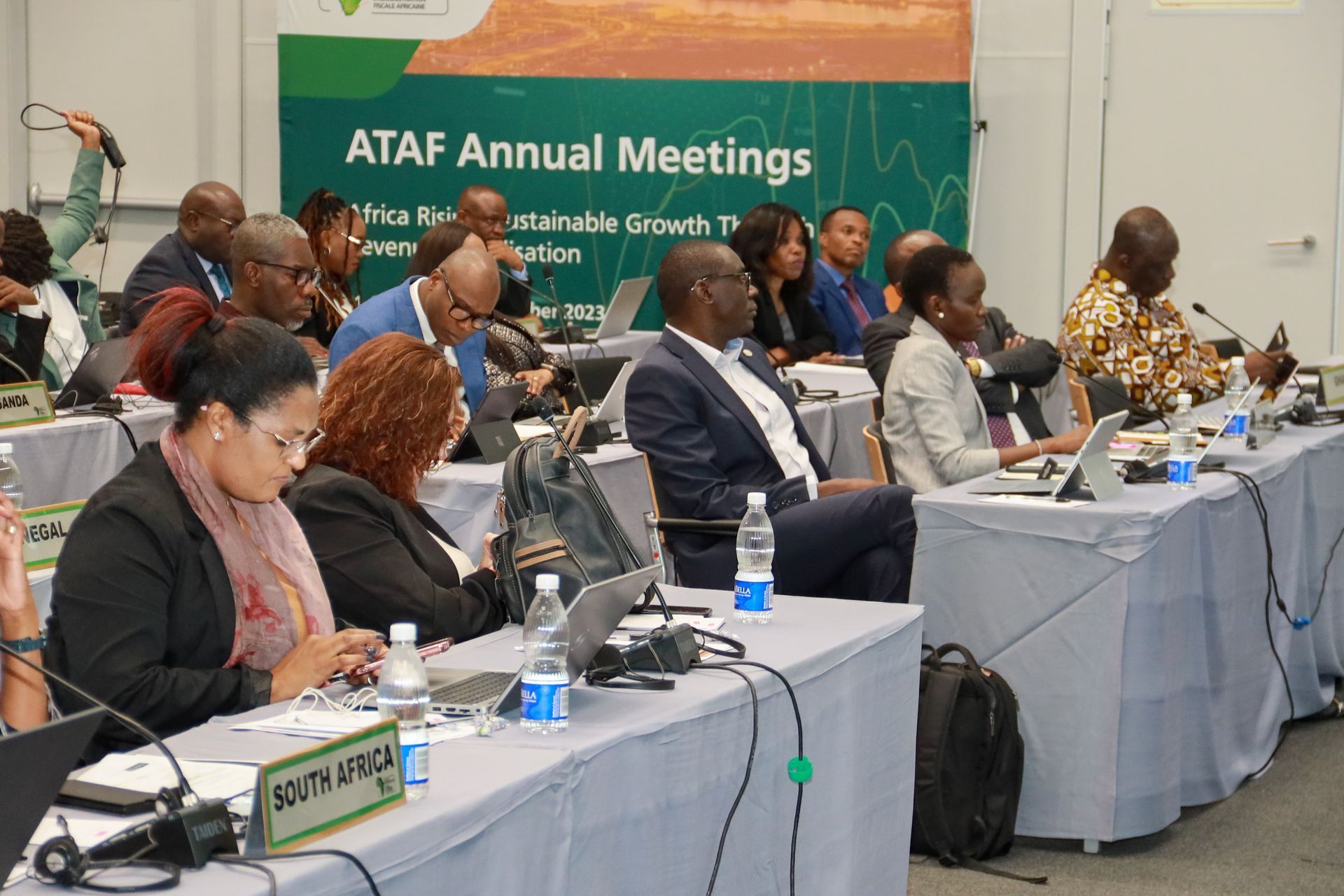What are ATAF's Joint Technical Committees?
The Joint Technical Committee is a technical working group within ATAF which provides a platform for technical discussions on the tax related IFFs.

FILE PICTURE: Joint Technical Committee meeting at the ATAF Annual meetings in Cape Town, South Africa in 2023.
PRETORIA - The Joint Technical Committee is a technical working group within ATAF which provides a platform for technical discussions on the tax related IFFs, and it provides a steer on the development of tax policy and administration solutions including Toolkits, Suggested Approaches and Guidelines for addressing Illicit Financial Flows (IFFs) in Africa.
The Joint Technical Committee (JTC) comprises of the five technical committees of ATAF (Indirect Tax Technical Committee (ITC), Direct Tax Technical Committee (DTC), Tax Administration Technical Committee (TTC), Cross Border Taxation Technical Committee (CBT) and Exchange of Information Technical Committee (EOI).
The JTC plays a pivotal role of steering the work of the above technical committees to the development of practical guidance and solutions on tax policy and administration matters with a view to address challenges associated with tax related Illicit Financial flows (IFFs). By doing so, the JTC critically evaluate the contributors of IFFs and determines the required response and solutions. This collective effort is anticipated to bolster transparency, improve tax compliance, and ultimately lead to a more efficient, equitable, and sustainable tax system within Africa.
Domestic Tax Working Group (DTWG)
The DTWG is composed of three technical committees: the Indirect Tax technical Committee (ITC), the Direct Tax technical Committee (DTC), and the Tax Administration technical Committee (TTC). These committees are also part of the JTC mentioned above.
The Domestic Tax Working Group focuses on different aspects of tax policy and administration and aims to address challenges and improve tax compliance and administration in African countries. The ITC focuses on all indirect tax issues including Value Added Tax (VAT) and excise tax, while the DTC addresses issues related to income, capital gains, wealth, and other direct taxes. The TTC on the other hand focuses on improving the capacity and effectiveness of tax authorities, including using technology and data analytics.
Cross Border Taxation (CBT) Technical Committee
The CBT Technical Committee was formed in 2014 and its first task was to develop technical arguments and solutions for complex cross border transactions that member States were facing. This later transcended into the important role of influencing the global tax agenda with an aim of ensuring that changes to the global tax rules are fit for purpose in Africa. The CBT not only provides technical updates in International Tax but also assists the ATAF Secretariat in representation at the African Union, OECD, and the United Nations. Members of the CBT are also an integral part of ATAF’s technical assistance drive on the continent, offering their support to fellow countries and promoting peer-learning for African excellence.
Exchange of Information (EOI) Technical Committee
The Exchange of Information Technical Committee was formed in 2017 after the initial working group fulfilled its mandate and converted to a technical committee. The Committee among other things, assists the ATAF Secretariat in the development of ATAF products on EOI such as suggested approaches to drafting EOI legislation and regulation, EOI Toolkits as well as assistance in delivery of ATAF technical assistance programs in respect of EOI.
Leadership of the Committees
Each committee is led by a chair and vice chair who are elected from among the members of the committee.
The leadership of the various committees is as follows:




















